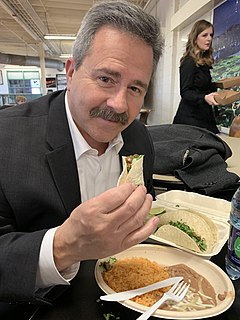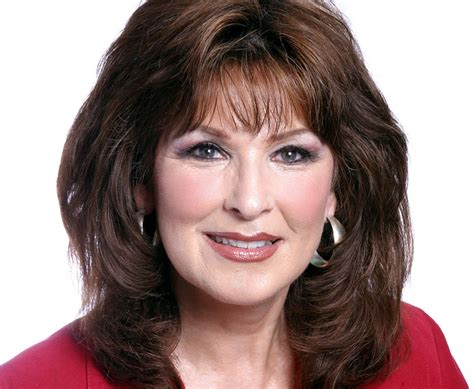A Quote by Christian D. Larson
It is just as necessary to forgive ourselves as it is to forgive others, and the principal reason why forgiveness seemed so difficult is because we have neglected to forgive ourselves.
Related Quotes
We forgive, if we are wise, not for the other person, but for ourselves. We forgive, not to erase a wrong, but to relieve the residue of the wrong that is alive within us. We forgive because it is less painful than holding on to resentment. We forgive because without it we condemn ourselves to repeating endlessly the very trauma or situation that hurt us so. We forgive because ultimately it is the smartest action to take on our own behalf. We forgive because it restores to us a sense of inner balance.
The remarkable thing is that we really love our neighbor as ourselves: we do unto others as we do unto ourselves. We hate others when we hate ourselves. We are tolerant toward others when we tolerate ourselves. We forgive others when we forgive ourselves. We are prone to sacrifice others when we are ready to sacrifice ourselves.
You must forgive everyone. Now many would say that "We cannot forgive, it's very difficult." But it's a myth whether you forgive or don't forgive. What do you do? You don't do anything. But when you don't forgive, then you are playing into wrong hands. That means you are torturing yourself, while those who have troubled you are quite happy.
Forgiveness does not mean that we suppress anger; forgiveness means that we have asked for a miracle: the ability to see through mistakes that someone has made to the truth that lies in all of our hearts. Forgiveness is not always easy. At times, it feels more painful than the wound we suffered, to forgive the one that inflicted it. And yet, there is no peace without forgiveness. Attack thoughts towards others are attack thoughts towards ourselves. The first step in forgiveness is the willingness to forgive.
Forgiveness is an act of creation. You can choose from many ways to do it. You can forgive for now, forgive till then, forgive till the next time, forgive but give no more chances it’s a whole new game if there is another incident. You can give one more chance, give several more chances, give many chances, give chances only if. You can forgive part, all, or half of the offense. You can devise a blanket of forgiveness. You decide
The reason to forgive ourselves is not because we feel like it or because we want to see ourselves as blameless but because we limit what we can receive from God when we hold on to our past. He wants to do so much more than we could ever imagine. Forgiving yourself starts with believing in God's incredible love for you and accepting His amazing grace and mercy. If God Almighty can forgive us who are we to hold on to what He has not only forgiven but forgotten
Forgiveness is not a moral issue.
It is an energy dynamic...
Forgiveness means that you do not carry the baggage of an experience.
When you choose not to forgive,
the experience that you do not forgive sticks with you.
When you choose not to forgive,
it is like agreeing to wear dark, gruesome sunglasses that distort everything,
and it is you who are forced every day
to look at life through those contaminated lenses
because you have chosen to keep them.
When we forgive someone, we do not forget the hurtful act, as if forgetting came along with the forgiveness package, the way strings come with a violin. Begin with the basics. If you forget, you will not forgive at all. You can never forgive people for things you have forgotten about. You need to forgive precisely because you have not forgotten what someone did; your memory keeps the pain alive long after the hurt has stopped. Remembering is the storage of pain. It is why you need to be healed in the first place.
I use my work as catharsis. That's often the best thing that we can do, is to allow ourselves to rage because it's so rare that we get to. We're told to forgive - I don't want to! I don't want to forgive my abuser! I don't care to and I don't like that assumption that forgiveness makes me a better person. It's not authentic to me, my feelings and what I need. But everyone has their own way.


































